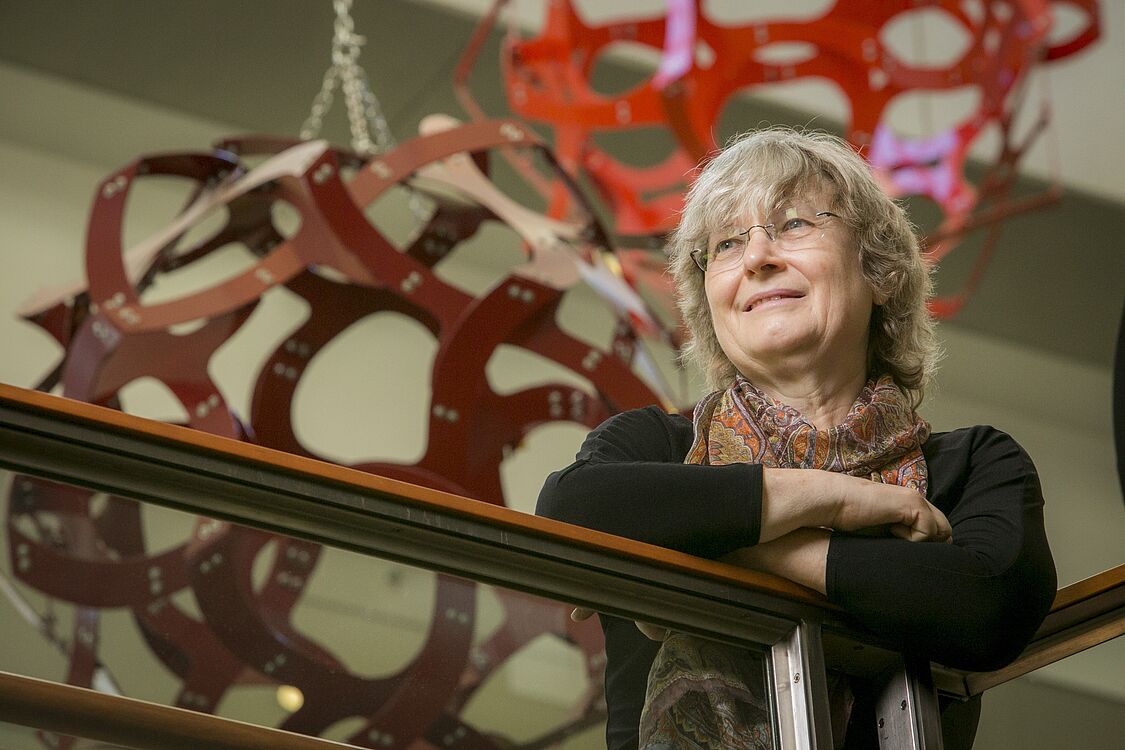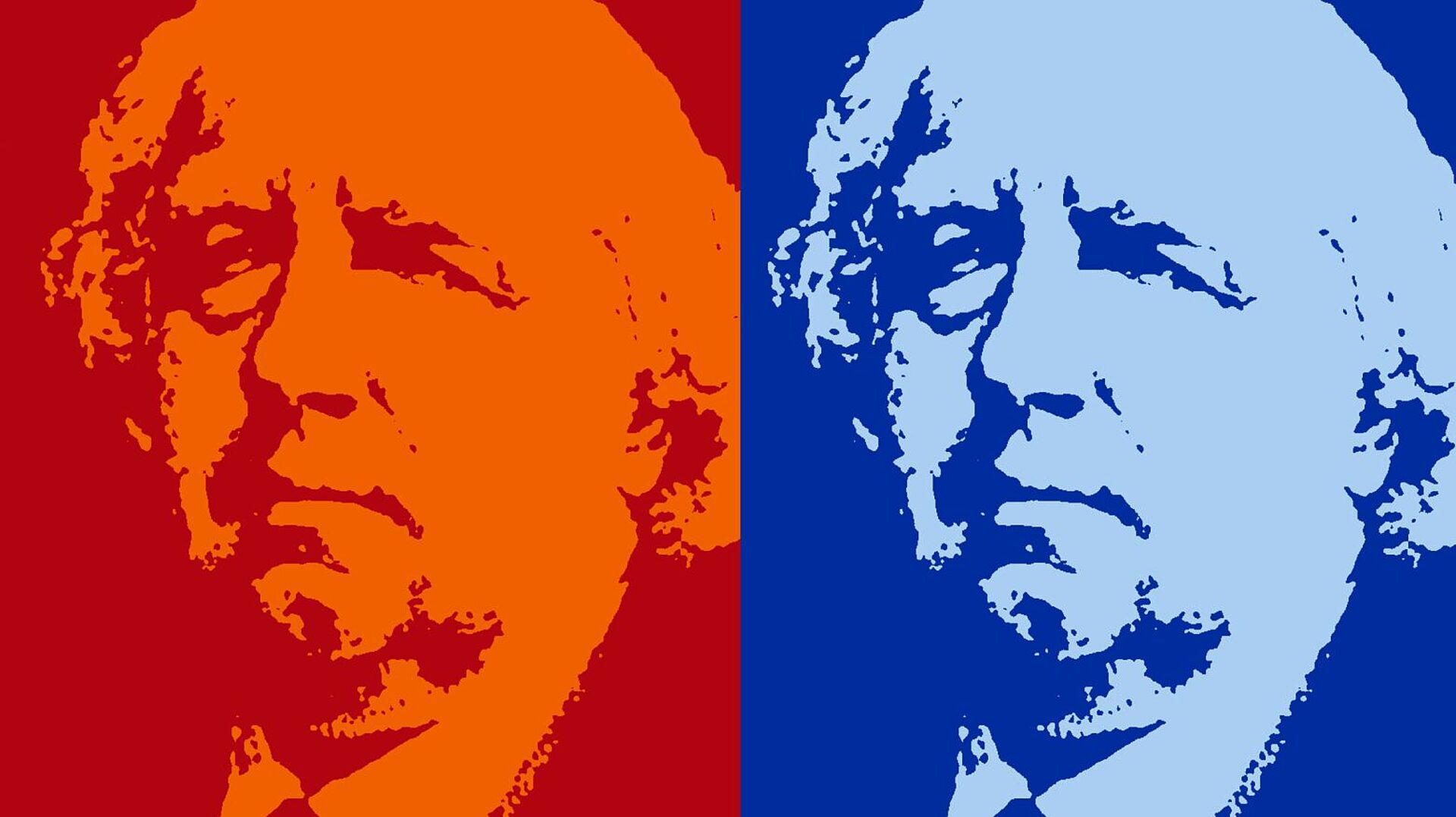Weierstrass Lecture at Paderborn University
This lecture series is named after Karl Weierstrass (1815–1897), who graduated from the Gymnasium Theodorianum in Paderborn in 1834 as primus omnium (top of his class). Weierstrass is considered one of the most important mathematicians of the 19th century and is regarded, among other things, as the founder of modern analysis.
The “Weierstrass Lecture in Paderborn” consists of a ceremonial lecture—the “Weierstrass Lecture”—and an introductory historical talk. The speakers for the Weierstrass Lecture are selected by an independent jury, which currently includes Professors Martin Kolb (Paderborn), Gérard Laumon (Paris), and David Vogan (Cambridge, USA).
Weierstrass Lecture 2025

The Weierstrass Lecture 2025 will take place on Friday the 11th of July, 2025 and will be given by Prof. Ingrid Daubechies. Prof. Daubechies is James B. Duke Professor at Duke University and was previously professor and director of the Princeton University's Department of Mathematics. Her fundamental contributions to the theory and application of wavelet methods are of essential importance in many fields of applied mathematics, including concrete technical implementations. For her work, she has received numerous awards, most recently the National Medal of Science in 2025.
Mathematicians helping art conservators and art historians
In recent years, mathematical algorithms have helped art historians and art conservators putting together the thousands of fragments into which an unfortunate WWII bombing destroyed world famous frescos by Mantegna, decide that certain paintings by masters were "roll mates" (their canvases were cut from the same bolt), virtually remove artifacts in preparation for a restoration campaign, get more insight into paintings hidden underneath a visible one.
The presentation reviews these applications, and gives a glimpse into the mathematical aspects that make this possible.
Historical Lecture
The historical lecture will be given by Prof. Dr. Volker Peckhaus from Paderborn University.
Karl Weierstrass and the Foundational Crises in Mathematics
The 19th century saw the emergence of mathematical logic which to some extent became part of the spectrum of mathematical disciplines, and a new interest in the foundations of mathematics driven not only by philosophers, but also by the mathematicians themselves. Weierstrass was ambivalent about these developments. There is no doubt that his new approach to analysis contributed significantly to the concept of number and thus to the philosophy of arithmetic, but he was rather sceptical about the new foundational set theory of his student Georg Cantor (1845–1918). Nevertheless, Weierstrass is mentioned in the context of the foundational crises in mathematics. Heinrich Scholz (1884–1956), the theologian, philosopher and founder of the Department for Mathematical Logic and Foundational Research in Münster, associated Weierstrass with the first foundational crisis in Greek mathematics which led to the concept of irrational numbers and to the development of the infinitesimal calculus in modern times. According to Helmut Hasse and Heinrich Scholz, it was the “ingenious Weierstrass”, who showed that the foundations of the calculus were logically untenable. Weierstrass was also associated with the modern foundational crisis that arose from the problems to prove the consistency of arithmetic in modern axiomatics and triggered by the paradoxes of logic and set theory. This was confirmed by David Hilbert (1862–1943), the Göttingen mathematician and most important voice in foundational questions at the beginning of the 20th century. He held his famous lecture “Über das Unendliche” (“On Infinity”) at the Weierstrass Week in Münster in 1925.
With the kind support of
Archive
| Year | Lecturer Weierstrass Lecture | Title Weierstrass Lecture | Lecturer Historical Lecture | Title Historical Lecture |
| 2024 | Prof. Dr. Alessio Figalli | Beyond Boundaries: Recent Advances in the Obstacle Problem | Prof. Dr. Tilman Sauer | Einstein and pure compass geometry |
| 2023 | Prof. Dr. Hugo Duminil-Copin | Critical Phenomena Through the Lens of the Ising Model | Prof. Dr. Annette Vogt | Karl Weierstrass as innovative math teacher |
| 2022 | Prof. Dr. Peter Scholze | Analytische Geometrie | Prof. Dr. Klaus Volkert | In höheren Sphären |
| 2019 | Prof. Dr. Akshay Venkatesh | From elliptic integrals to Diophantine equation | Prof. Dr. Gregor Nickel | Mathematik und Bildung – Eine historisch-philosophische Spurensuche |
| 2018 | Sir William Timothy Gowers | Results and open problems related to Ramsey's theorem | Prof. Dr. Helmut Pulte | C. G. J. Jacobi (1804-1851) zwischen Profession und Assimilation. Ein jüdischstämmiger Mathematiker in der preußischen Wissenschaftskultur |
| 2017 | Prof. Dr. Martin Hairer | Taming infinities | Prof. Dr. Walter Purkert | Felix Hausdorff als Philosoph und Literat |
| 2015 | Prof. Dr. Wendelin Werner | Zufallsmäßig malen und kritzeln | Prof. Dr. Peter Ullrich | Der Einfluss von Karl Weierstraß auf die moderne Mathematik |
| 2014 | Prof. Ben Joseph Green | Points and Lines | Dr. Ulf Hashagen | Heldenverehrung, Rivalität, Epigonentum: Weierstraß und die Berliner Vormacht |
| 2013 | Prof. Elon Lindenstrauss | Rigidity properties of diagonalizable flows on homogeneous spaces | Prof. Dr. Volker Remmert | Jewish émigré mathematicians and Germany after World War II |
| 2012 | Prof. Richard Taylor | Reciprocity Laws and Density Theorems | Prof. Dr. Norbert Schappacher | Claude Chevalley, Weierstrass's style, and the transformation of mathematics between the World Wars |
| 2011 | Prof. Dr. Gerd Faltings | Diophantische Approximation | Prof. Dr. Jürgen Elstrodt | Die prägenden Jahre im Leben von Karl Weierstraß |
